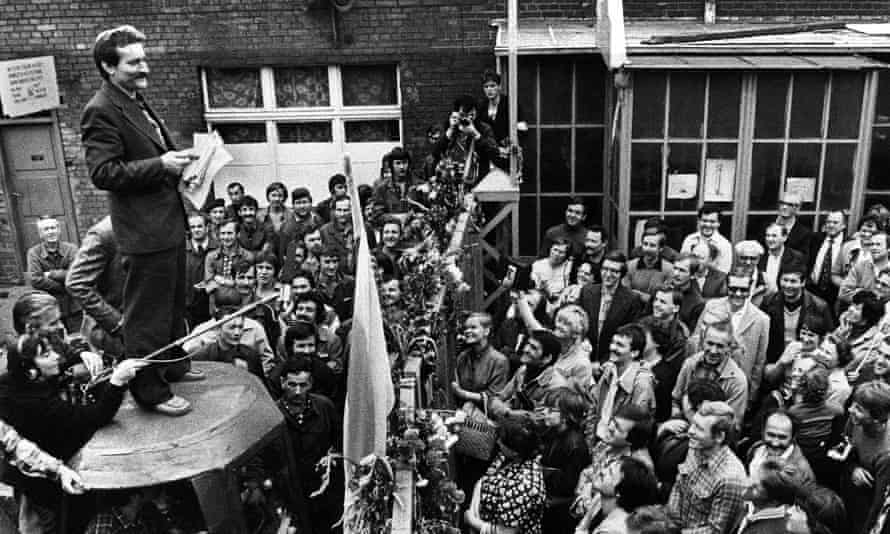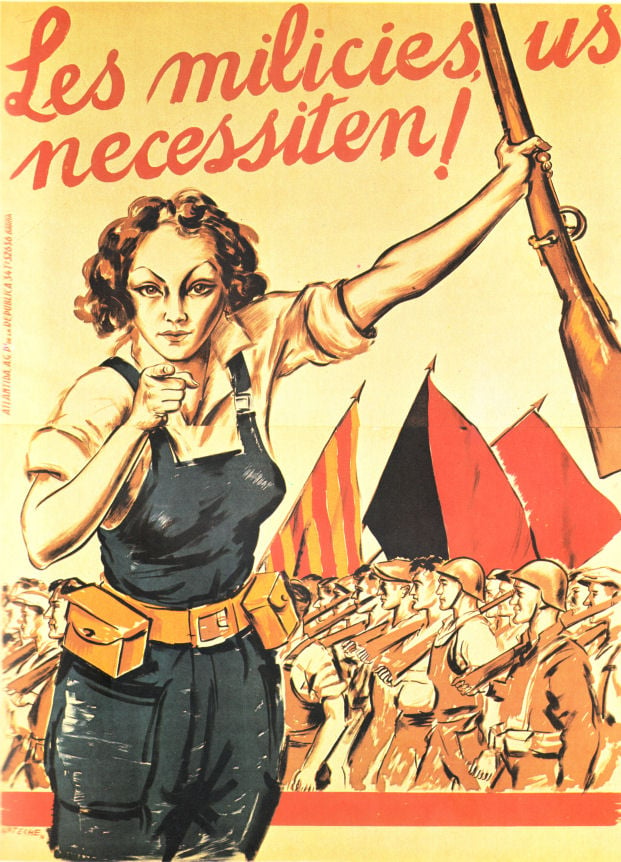Poland “Solidarity” Union Recognized (1980)
Sun Aug 31, 1980

Image: Lech Walesa, co-founder of Solidarity, speaks to workers during a strike at the Gdansk shipyard, August 1980. Photograph: Erazm Ciołek/Forum/Reuters
On this day in 1980, the Polish Union “Solidarity” was officially recognized by the state after the Gdańsk Agreement was signed. The union, which boasted millions of members and led the largest strike in the Soviet bloc, accepted money from the CIA and AFL-CIO, and played a key role in liberalizing Poland.
Workers at the Gdańsk Shipyard had gone on strike in mid-August, following the firing of Anna Walentynowicz, a co-founder of Solidarity. Participants formed an Interfactory Strike Committee (MKS), issuing 21 demands, including the acceptance of free trade unions independent of the Communist Party. These demands were agreed to by the state on August 31st in the Gdańsk Agreement.
Solidarity’s membership peaked at 10 million in September 1981, representing one-third of the country’s working-age population. The union organized the largest strike ever in the Soviet Bloc the same year, the “Warning Strike” - a four-hour general strike on March 27th involving millions of workers.
Solidarity enjoyed considerable support from various anti-communist groups, including the CIA, the AFL-CIO, and even the U.S. Congress directly, which authorized the National Endowment for Democracy in 1983, allocating $10 million to the organization.
Solidarity played a key role in Poland’s liberalization. 1989 round table talks between the government and the Solidarity-led opposition produced an agreement for the 1989 legislative elections.
By the end of August, a Solidarity-led coalition government had formed and, in December 1990, Solidarity co-founder Lech Wałęsa was elected President of Poland and began privatizing the country’s economy. He also pushed for Poland’s entry into the North American Trade Organization (NATO) and the European Union, which occurred in 1999 and 2004, respectively.
- Date: 1980-08-31
- Learn More: jacobinmag.com, en.wikipedia.org.
- Tags: #Communism, #Labor.
- Source: www.apeoplescalendar.org

